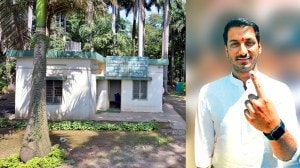Will Hizb peace offer bring relief to scarred Kashmir?
SRINAGAR, AUG 17: With the renewed cease-fire offer from Syed Salahuddin, the Hizbul Mujahideen has again extended an olive branch to the ...

SRINAGAR, AUG 17: With the renewed cease-fire offer from Syed Salahuddin, the Hizbul Mujahideen has again extended an olive branch to the Centre. But, if reciprocated by New Delhi, will the Hizbul move bring peace to Kashmir? Observers feel that given the outfit’s strength, its network and role in the decade-long militancy, the cease-fire will take the steam out of the entire insurgency movement in Jammu and Kashmir.
Hizbul Mujahideen, the biggest local militant outfit has driven the youth join insurgency operations over the last decade. Hizb, according to official sources, is recruiting 500-600 youth every year and banks on the massive support it enjoys in the Valley,
Taking into account the emergence of various militant outfits on the Kashmir scenario in the recent past and attempts to attack security forces, the Hizb cease-fire call will have a strong bearing on militancy. This is owing to the fact that other outfits do not command the same hold as by the Hizb.
Hizbul Mujahideen has a four-tier organisational setup. Official sources reveal that every Hizb militant is supported by 4-5 workers, sympathsisers, fund-raisers and those who provide food and shelter. The outfit also boasts of the largest number of guides, porters who facilitate infiltration and ex-filtration besides the smuggling of arms and ammunition from Pakistan.
Statistics reveal that Hizbul has at least 980 identified militantsoperating in Kashmir and another 2,000-2,500 in various training camps acrossthe Line of Control (LoC).
The Jaish-e-Mohammad, the newly-floated group of Moulana Masood Azhar, is the second largest militant group having at least 450 militants, including 70 locals. The Lashkar-e-Toiba comes third with 220 militants, 16 locals.
Abdul Ahad Waza, general council member of Hurriyat Conferance, says the cease-fire by Hizbul was a positive move. “People want peace and the gun is not the solution of Kashmir dispute,” says Waza. He believes only local militants get support of people and foreign merceneries cannot survive without the local support. If the Centre responds positively and initiates a meaningful dialogue, foreign militants cannot survive in Kashmir.
He said some politicians are also against the peace process as their survival is hinged on the continuance of militancy. “Only the Hizbul Mujahideen has power and public support to bring peace,” Waza said.
Security experts believe the cease-fire will mean 70 per cent decline inmilitancy-related incidents in the State. The Hizbul was said to beinvolved in 90 per cent IED attacks on security forces and was a mjor threat to politicians in the Valley. Hizb operations chief Abdul Majid Dar recently admitted the killing of political workers by the outfit.
Security analysts said the outfit has attacked at will and can easily continue its activities for another five years. The Hizb is also learnt to have substantial contacts in the establishment as well. Above all, it has a strong command structure that other outfits lack. Reason, when Abdul Majid Dar announced cesaefire in Kashmir his supreme commander Syed Salahudin endorsed it in Pakistan, and when the latter call of cease-fire, Dar and his commanders abide by the decision.



- 01
- 02
- 03
- 04
- 05




























